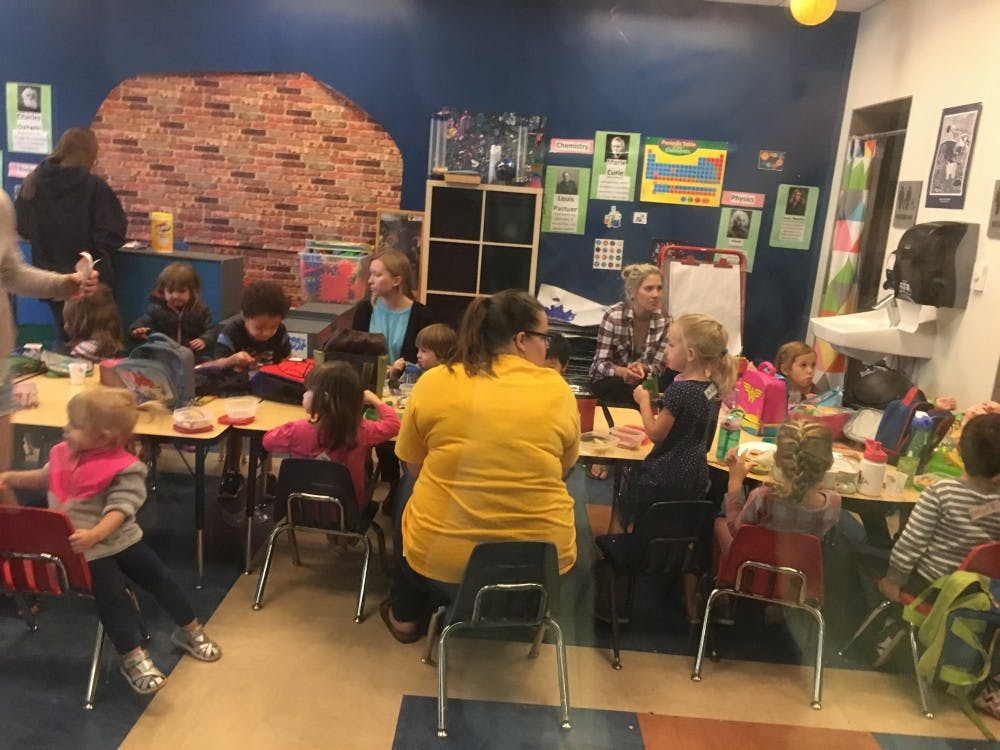The ASU Child Study Lab looks more like a preschool than a laboratory, but the research conducted amid the desks and toys could help psychologists understand how young minds are formed.
The lab, directed by ASU professor Anne Kupfer, studies child psychology by using real classroom environments to study their behavior. The classrooms accept students as young as 15 months in order to acclimate them to a school atmosphere; its oldest class is comprised of 4- and 5-year-olds.
“(The students) are coming here to learn how to interact with their peers," Kupfer said.
Bringing students in the classroom at an earlier age follows recent research from the psychology field, which indicates that the first five years of life are crucial for cognitive development, Kupfer said. That idea has become a main focus of the school.
The preschool functions as both a lab and a viable learning center, but while academics are present within the Child Study Lab, they are not the most important part of a child's development.
Just sitting passively in a classroom doesn’t work, Kupfer said.
The Child Study Lab’s curriculum is designed to help students understand classroom experiences by applying new perspectives to the learning process, such as self-regulation.
Self-regulation is “the ability to divert your attention from something that you enjoy doing to something you don’t want to do," Kupfer said. “Self-regulation permeates every aspect of our lives, we have over 40 years of research that has shown us that self-regulation is going to predict how a child does later on in life, not just socially, but academically.”
Kupfer said the only way to teach things like self-regulation is to wait for conflict. Then, as these inevitable conflicts between students happen, the Child Study Lab is able to reshape these interactions, guiding students towards positive relations with their peers and getting them to think carefully about their actions.
“Our self-regulation curriculum includes things like emotion understanding," Kupfer said. "How many people think to teach children about emotions?”
Many people aren't aware that children’s understanding of emotion is limited and, to an extent, can be learned, Kupfer said.
An example of this limited range of emotions can be seen when a child takes a toy from another child, Kupfer said. When this interaction is observed, the child that took the toy often fails to understand why the other might be upset. She said this relates to self-regulation and another concept called "theory of mind."
Theory of mind is “when you can understand that another person can believe something about a state of affairs that is in fact not true, or not what they believe to be true," said William Fabricius, ASU's leading psychologist who specializes in theory of mind.
“It’s really important in normal social interactions, because a lot of times you say something to someone who doesn’t know what you know," Fabricius said. “Often those miscommunications lead to social conflicts."
Arthur Glenberg, a psychology professor who also works in the lab, helps to reframe the way we learn using the theory of embodied cognition.
Glenberg said that the key to better understanding is to have the children “simulate or imagine the activities as they’re being spoken."
He said the imagination process leads to higher scores on periodically-administered comprehension exams.
“If you don’t understand very well, you don’t remember very well," Glenberg said.
Reach the reporter at dcdunlop@asu.edu.
Like The State Press on Facebook and follow @statepress on Twitter.




